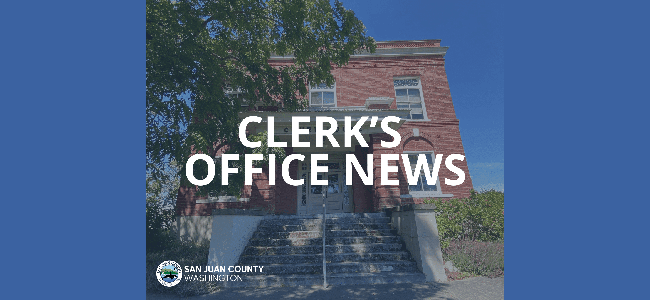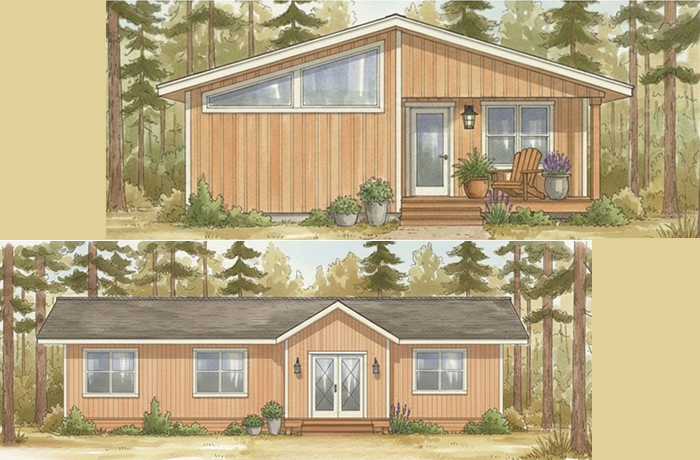A contemporary cultural perspective
— from Jari Brenner —

I am a cultural anthropologist with an emphasis on contemporary American culture. I also study Intercultural Communication.
When I first came to Orcas Island in 1990, there was a thriving community. Year round islanders regularly met to share their lives, ideas, and hopes in community building workshops. It was a time of vibrant relationship. Though circumstances led me away from the island in 1993, I always expected to return. It was the sense of community that called me back.
Yet, there was something missing. I returned in 2013 to find many changes, still, a sense of community, and a greater sense of tolerance to some differences between us. But, why on this idyllic microcosm of our larger world, was there still very little diversity?
Though I am a straight, white woman, I was gratified to see that there seemed to be a much greater tolerance for difference in religion, gender identity, and sexual preference, than when I left in 1993. I also noticed that there were a few more people of color calling this island their year round home.
When I left Orcas, I went to Honolulu on O’ahu, and Kapa’a, on Kau’ai, in the state of Hawaii, where I was in a distinct minority. I appreciated understanding, in some small way, what it felt like to be immediately judged by some people based on my skin color. It was good to know what this felt like.
It doesn’t feel good. I felt uncomfortable when incidents of unmistakable racism occurred. I felt threatened, objectified, and ignored.
I also felt incredibly enriched by the cultural diversity, and warmth, of most of the people there. The everyday life that I experienced as a year round resident of Hawaii, included a depth of culture through food, music, art, and, yes, paradoxically, a feeling of inclusion and love. Cultural groups actively shared with each other their way of seeing the world, and their way of expressing it.
I then lived in the Twin Cities area of Minnesota, where rich diversity exists, yet it is extremely compartmentalized. Each diverse group keeps to itself. It seems, for the most part, to be a pretty tolerant place, but it could be much more.
A few intolerant people can cause a great deal of harm through ignorance. What can we, as the year round residents of Orcas Island, do to truly promote liberty, equality, and justice for all?
One thing that we can do is to learn about ourselves. We have all been exposed to various forms of intolerance through cultural immersion. Whether through media, family, schools, or churches, we all have prejudices.
These can be unlearned if one is willing to work at it.
We have a tremendous opportunity to create a model for tolerance, understanding, and respect on this island. We have been graced with the interest and presence of many different cultures who are finally feeling that it might be safe to live here. This diversity is a rich, and strong building material for the future of Orcas Island, and we have much to learn from each other.
A group is forming to discuss how we can each unlearn what isn’t serving us through diversity education training. Please watch for announcements and join in. You are needed and valued.
The future of Orcas Island depends on you.
**If you are reading theOrcasonian for free, thank your fellow islanders. If you would like to support theOrcasonian CLICK HERE to set your modestly-priced, voluntary subscription. Otherwise, no worries; we’re happy to share with you.**







Jari…your mention of “community building workshops” caught my attention as I was their instigator after having attended one on Vancouver Island. The “CBW” format, as designed by M. Scott Peck and described in his book, The Different Drum, was adopted locally on several occasions and evolved into several “consensus workshops” focused on school funding, gun safety, and visioning for Eastsound. I found these events to be time well spent
We reward bullies.
We stand by and watch.
We excuse our inaction with defamation.
We exclude those that challenge our ignorance,
For it is not ‘ignorance’ if it works.
This is how we do our business.
Day by day.
It is not the acts of a few, but the consent of the many
That make us what we are.
Your ‘minority’ status matters not
It is the simple politics of getting and keeping power
It matters not your color or your gender.
Might Makes Right. Might makes ‘white’
We invent truth to suit ourselves
and punish those that say else
Our self righteousness is a hymn to heaven
And justifies all we do.
“I am sorry.” “I have wronged you. ”
As IF!
We mock your innocence.
It is not ignorance
If It Works.
We will shame you with our impunity.
Thanks, Fred, for creating those wonderful workshops here! Yes, that is the book that that I remember the workshops being based on in the early 1990’s.
Workshops can be fantastic… especially when they invite open communication and diversity. Our Island is very special and unique (compared to the Mainland certainly) in that I do find it embracing of diversity and open to individuality. We have more smiles and actual LOVE in our Village than many families enjoy in their big city homes. Encouraging more acceptance or all walks of life, ideas and cultures is beautiful. We must ensure that no voice is lost or hushed in the process. We are all equally important. Our ambitions, personalities, beliefs, and histories make us each unique – we need to celebrate that as well as to learn from each other. Looking forward to hearing more.
Jari, thank you for an insightful article. I am one of the group members developing a diversity, inclusion and equity workshop for Orcas Island residents. We hope to foster a dialogue about what community means, when it has been difficult to maintain, and when, by harnessing our diversity and uniqueness, it empowers us to accomplish more than we dreamed possible.
Is such a workshop something readers would be interested in attending? What topics or situations would you like incorporated in the workshop?
Jari, thank you for getting the dialogue started.
Best regards,
Kevin
Does building communities include welcoming outsiders to live on Orcas or to visit as tourists?
Thanks for this reflection.
I just moved back to Orcas after nearly 40 years off the island.
I’ve spent the last 30 years or so working with refugees, monastics and inmates.
It still feels odd to me to live here where there isn’t such diversity of such beautiful shining faces of beautiful color, and it is more diverse now than back then…
When I was telling my prison interns, inmates and staff, mostly black, asian, and latino, that I was moving up here, they asked what the population was like. “Mostly white….”
One of them said “Well are they white and prejudiced, or white and open hearted/minded? That is what really matters” she said.
In my work with Restorative Justice over the years, I can attest to the truth of that. No matter how many Diversity Groups people attend, it is the warm quality of an open heart that matters most. That is where connection is made and kept and othering others disappears. Best of luck and thanks for bringing this up.
Such a great question.
I do so want to be a part of this!
Jari,I find your opinion thought provoking, well founded and heartfelt. I greatly agree with your ideas about intolerance absorption through exterior influence, but would also suggest that every individual must admit to owning a degree of prejudice quite removed from outside pressure of any kind. Like personal demons private personal intolerance can be faced, acknowledged and then judicially set aside, but cannot be expunged, obliterated or erased from the subconscious. Mankind can ever learn better behaviour but cannot change irrevocably its nature.
Dr. Kaye, you and your wife will be most welcome. Notwithstanding the NIMBY’s who mostly came from elsewhere too. True diversity requires thoughtful introspective comments such as those you provide. Please keep us in your plans.
The San Juan Islands are the least judgmental of any place I can imagine. Here people are judged, if at all, by the qualities of their character; not skin color, religion, sexual persuasion or any other metric by which those with bad intentions may try to devide our communities. From 30 years of direct on-the-ground personal experience I can attest that everyone with an open heart is welcome.
Merry Christmas, Happy Holidays and remain positive for 2020 and the years beyond.
John Evans
Thank you for the comments. There will be a more detailed article soon from the group forming the workshop about why this training is needed, yes, even on Orcas Island. There is also a discussion about this topic on the Facebook page, Orcas Island Rant And Rave. There is more than one thread, so explore if you are interested.
So wait..
The ONLY problem we have is a mysterious lack of non-whites?
C’mon.
Can we identify anything that is literally more superficial..
Skin color? Really?
That’s a little scary.
Come ON.
You guys, this right here is proof enough that we are unable to talk about what matters. And now we need a ‘specialist’ to help us tell the truth when we can’t admit that there’s anything we need to talk about besides
Skin Color?
And anything else is a rave or an insidious attempt to divide us?
How is this different from denial?
From the Mayo Clinic:
Refusing to acknowledge that something is wrong is a way of coping with emotional conflict, stress, painful thoughts, threatening information and anxiety. You can be in denial about anything that makes you feel vulnerable or threatens your sense of control…. You can be in denial about something happening to you or to someone else.
When you’re in denial, you:
+ Won’t acknowledge a difficult situation
+ Try not to face the facts of a problem
+ Downplay possible consequences of the issue
Denial can be a helpful initial response to stressful information.
BUT continued denial is harmful when a factual or behavioral pattern reveals unwellness or causes harm.
Orcas to Earth:
“Houston, we have a problem.”
It is called bullying.
We all know about it.
Thought-provoking questions; thanks for (re-)starting the ongoing dialogue that needs to keep happening.
The work i’d like to see come to Orcas is called The Work that Reconnects – Joanna Macy’s work that digs right down to the common concerns and fears we all share (such as fears around death, climate change in front and center of everything as our lives spiral out of control, and what it means to be alive in these times.
i’m not sure that “community building workshops” can teach diversity, or tolerance, or open-mindedness and open-heartedness, but they can give some tools for listening to each other. that’ a start.
getting to know our neighbors and community, volunteering, working with children, learning about other cultures and customs, sharing music and dance and food; listening with the intent to understand; all these things can help us see how alike we are in fundamental ways, and to celebrate our differences as well, in the trying times to come.